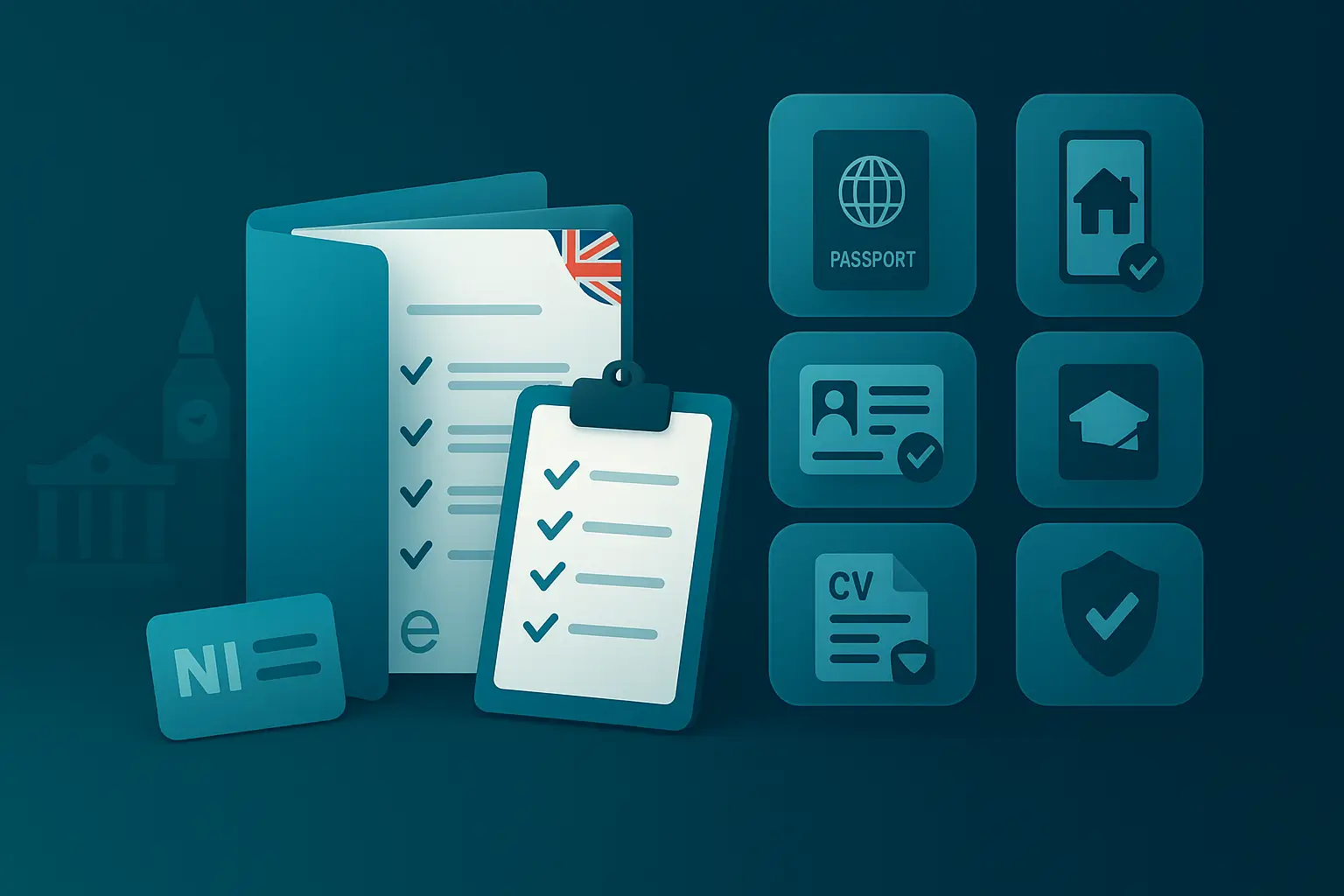Documenti necessari per l’immatricolazione all’università in Inghilterra

Mihai Flueraru
Novembre 4, 2025
If you want to start university in the UK, the first step is having your documents prepared correctly. It sounds simple, but this is where many applicants get stuck. Universities are strict and if something is missing or unclear, your application can be delayed or even rejected.
To keep things easy, here’s the core checklist you’ll need:
Valid passport or national ID
Share code (UKVI status: pre-settled, settled, or visa type)
Proof of UK address
Diplomas and transcripts
Updated CV
Personal statement
Sometimes academic or professional references
For certain courses, DBS (criminal record check for roles with vulnerable people)
Apply via Enrollmate and we’ll handle the entire process for you!
NINo (National Insurance Number)
Your National Insurance Number proves you’re registered in the UK system. Some universities request it for admin checks or to link your Student Finance application.
👉 Don’t have an NINo? Not a problem. Some universities don’t require it at all, and where it’s needed, we’ll explain the steps to obtain it.
Share code
The share code is generated in your UKVI account (“View and Prove your immigration status”). It confirms your UK residency status — pre-settled, settled, or a specific visa type.
Without a share code, the university can’t confirm you’re eligible to study and receive funding. When you send your share code, include your date of birth so the check is valid.
Copy of your passport
Your passport is the primary ID document and the strongest form of international identification.
If you’re an EU citizen, some universities accept a national ID card, but the passport remains the preferred option as it reduces verification issues.
👉 Important: If your name differs across documents (e.g., after marriage), also include the document explaining the change (marriage certificate, deed poll).
Proof of UK address
Universities need to confirm you actually live in the UK. They usually ask for 1–2 recent official documents (from the last 3 months) showing your name and address.
Examples include:
Council tax bill
Utility bill (electricity, gas, water, internet)
Bank statement
Tenancy agreement
Letter from the NHS or your GP
Letter from HMRC or your employer
Moved recently? Send one document for your previous address and one for the new address so everything is up to date.
Tips for submitting documents
Take clear, legible photos of each document (scans aren’t mandatory).
Ensure all data is fully visible and not blurred.
If you go on campus, you can show documents at the university office.
👉 Want us to check everything is correct before you submit? Send your documents via our form and we’ll give you quick feedback.
FAQ
What are the core documents, in short?
In 90% of cases you’ll be asked for: passport/ID, share code (UKVI status: pre-settled/settled or visa), UK proof of address, diplomas/transcripts, CV, possibly references and a personal statement. Some courses also require a DBS check.
What is a “share code” and where do I get it?
It’s the code generated in your UKVI account (“View and Prove your immigration status”) proving your immigration status (pre-settled/settled or visa type). Send it together with your date of birth for verification.
I don’t have a passport. Can I use a national ID card?
For EU citizens, many universities accept a valid national ID. However, a passport is still preferred. If your name differs between documents, attach proof of name change (marriage certificate, deed poll).
What counts as proof of UK residence?
Typically 1–2 recent documents (last 3 months) with your name and UK address, such as a council tax bill, utility bill, bank statement, tenancy agreement, or official letters from the NHS/GP, HMRC, or your employer.
My diplomas are from Romania. Do they need translating?
Usually, colour scans of diplomas/transcripts are accepted. If they’re not in English, a certified translation may be requested. If you’ve previously studied in English, a Medium of Instruction (MOI) letter can sometimes be accepted.
I’ve recently changed address. What should I do?
Send one recent document for the old address and one for the new address (dated after you moved). Tell the university or your adviser so your record can be updated.









